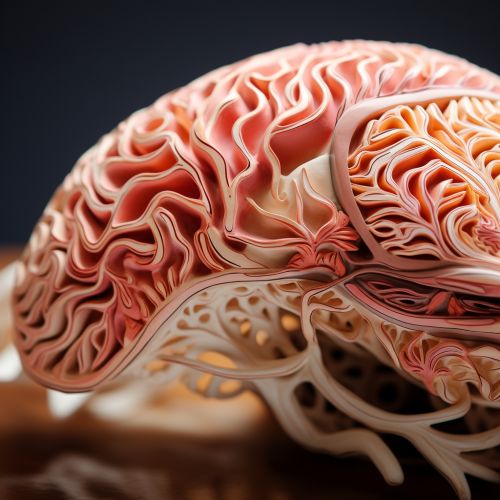Brain Development
Introduction
The human brain is an intricate organ responsible for all voluntary and involuntary actions within the body. Its development begins in the womb and continues throughout adulthood, involving a complex interplay of genetic and environmental factors. This article explores the process of brain development, delving into the stages, factors influencing development, and the implications of abnormal development.


Stages of Brain Development
Brain development, or neurodevelopment, is a process that begins prenatally and continues into adulthood. It encompasses several stages, including neurogenesis, neuronal migration, synaptogenesis, and myelination.
Neurogenesis
Neurogenesis is the process by which neurons, or nerve cells, are generated in the brain. This process begins in the embryonic stage and continues until early postnatal life. During neurogenesis, neural stem cells differentiate into neurons, which form the basic structure of the brain.
Neuronal Migration
Once neurons are formed, they must migrate to their final destinations in the brain. This process, known as neuronal migration, is critical for the proper formation of brain structures and circuits. Disruptions in neuronal migration can lead to severe neurodevelopmental disorders.
Synaptogenesis
Following migration, neurons form connections with each other through a process called synaptogenesis. This involves the formation of synapses, or junctions, where neurons communicate with each other. Synaptogenesis is most active during early childhood but continues throughout life as the brain learns and adapts.
Myelination
The final stage of brain development is myelination, where neurons are insulated with a fatty substance called myelin. Myelination increases the speed of electrical impulses along neurons, enhancing brain function. This process begins in infancy and continues into early adulthood.
Factors Influencing Brain Development
Brain development is influenced by a variety of factors, including genetics, environment, nutrition, and social interactions.
Genetics
Genetic factors play a significant role in brain development. Genes provide the blueprint for the formation and organization of the brain. Mutations or abnormalities in certain genes can lead to neurodevelopmental disorders.
Environment
The environment in which a child grows up also significantly influences brain development. Factors such as exposure to toxins, stress, and access to stimulating learning environments can all impact the developing brain.
Nutrition
Proper nutrition is essential for brain development. Nutrients such as omega-3 fatty acids, iron, and vitamins are crucial for the growth and development of neurons and other brain cells.
Social Interactions
Social interactions also play a key role in brain development. Interactions with caregivers and peers provide the stimulation necessary for the development of social and emotional skills, as well as language and cognitive abilities.
Implications of Abnormal Brain Development
Abnormal brain development can have significant implications, leading to a range of neurodevelopmental disorders. These include conditions such as autism spectrum disorder, attention deficit hyperactivity disorder, and dyslexia. Early detection and intervention can often help mitigate the impact of these disorders.
Conclusion
Brain development is a complex process that begins in the womb and continues throughout adulthood. It is influenced by a variety of factors, including genetics, environment, nutrition, and social interactions. Understanding this process and the factors that influence it can provide valuable insights into neurodevelopmental disorders and potential interventions.
